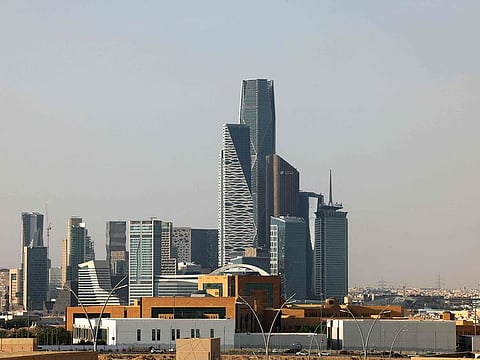Saudi foreign reserves plunge by most since pandemic to 2009 low
Net foreign assets fell to 1.53 trillion riyals after increases in May and June

Riyadh: Saudi Arabia’s foreign reserves dropped by over $16 billion last month, in the sharpest decline since oil prices turned negative during the depths of the pandemic and the kingdom used its savings to invest in US stocks.
Net foreign assets fell to 1.53 trillion riyals ($407 billion) after increases in May and June, according to the central bank’s monthly report published on Monday. That’s taken them to the lowest since late 2009, and came as the kingdom slashed oil production in a bid to prop up prices.
“The net foreign asset position should improve in September, especially when the first performance-linked dividend distribution” arrives from Aramco, said Monica Malik, chief economist at Abu Dhabi Commercial Bank.
The kingdom’s effort this year to support crude prices with output curbs has left it with far smaller receipts from oil sales abroad. After earning a windfall of nearly $326 billion in 2022, Saudi Arabia is at risk of running a budget deficit again following its first surplus in almost a decade.
The country has been shifting its investment strategy over the past few years away from keeping most of its foreign assets with the central bank as it builds up hundreds of billions of dollars in sovereign funds including the Public Investment Fund and the National Development Fund.
The decline in July was the biggest since the government transferred $40 billion to its wealth fund from the central bank to invest abroad as the global pandemic wreaked havoc across global markets. The stockpile is now down nearly 45 per cent down since peaking in August 2014.
Earlier this year, the world’s largest crude exporter said it would curb oil supply and pump about 9 million barrels a day. The output cut has since been prolonged until the end of September, raising the risk of an economic contraction this year.
Officials said last year that the kingdom planned to hold on to excess oil revenues and won’t spend the money until rebuilding reserves depleted during years of subdued oil prices.
Reserves are key to maintaining confidence in the kingdom’s dollar peg. The riyal’s 12-month forward outright rate was little changed on Monday, remaining slightly weaker than the 3.75 peg but suggesting traders see the currency link as solid.
Sign up for the Daily Briefing
Get the latest news and updates straight to your inbox







